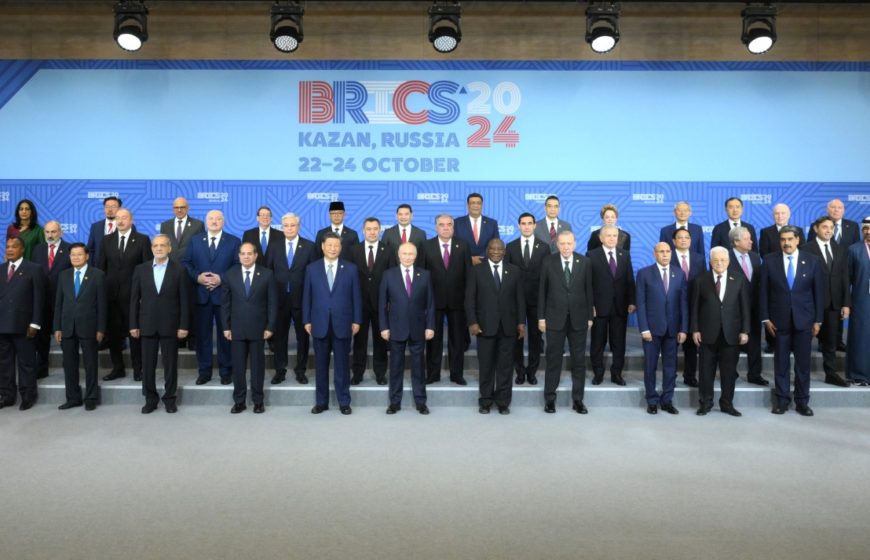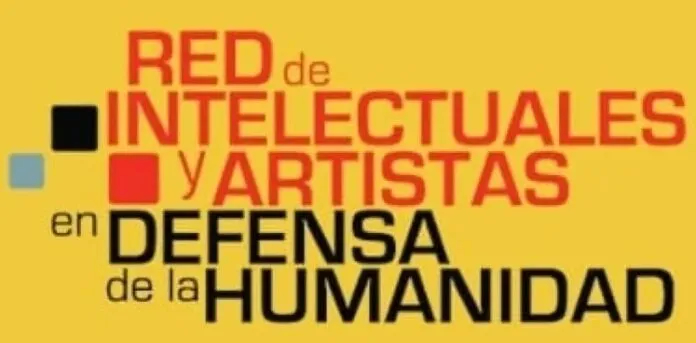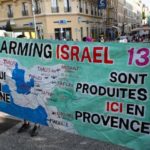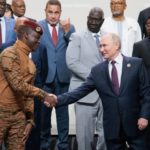Venezuela was candidate to be joining this Conference, but president Lula of Brazil used his veto against it. This veto is an expression of the competition problems that these countries – very different from the economic and social point of view – are going to have to face. One of the difficulties for them, will be to find together a way to common planning that does not call the capitalist system into question.
The Posadists Today publish here two points of view on BRICS they deem of interest:
. The article by Beto Almeida, journalist at Telesur Community TV, 26.10.24. It explains the veto that Lula (of Brazil) slapped on Venezuela to stop it entering the BRICS.
. The declaration of the Network of Intellectuals and Artists in Defence of Humanity[1], 30.10.24, against this veto from the Brazilian government.
Brazil’s veto on Venezuela and the true reasons behind coercive diplomacy
“Breach of trust”–
Celso Amorim is the international special advisor to the presidency in Brazil, and former Minister of Foreign Affairs. Breach of Trust is the phrase that he used this year to justify the veto that Brazil slapped on Venezuela to stop it entering the BRICS. The latter has now 13 new partners, two Latin American ones included, Cuba and Bolivia. But what is the criterion behind this Brazil’s veto? Is it a punitive veto?
It is worth recalling that only a few months ago, President Lula had received President Nicolás Maduro in Brasilia, and supported Venezuela’s candidacy to the BRICS. What could be justifying such a radical change in Brazilian diplomacy?
In international politics, the Brazilian government is sure to have many divergences with the governments of Saudi Arabia and Turkey, for example. Accusations have been levelled at President Erdogan of Turkey for having organised a pre-emptive coup to ward off the destabilising attempt of a US-sponsored coup to get him out of power. There has been great fanfare about this, unlike when ex-president Dilma Rousseff was censured with virtually no reaction. On the part of Brazilian diplomacy, none of this has constituted a breach of trust towards her as a new BRICS’s partner! But how do you call the trust that Itamaraty[2] places in a government of Saudi Arabia short of sincerity in its support for the Palestinian cause? A cause so dear to Brazilian diplomacy? Saudi Arabia joined the BRICS with no Brazilian objection!
Solidarity oxygen
Is Itamaraty putting in place a diplomacy of punishment? Bolivarian Venezuela is on the receiving end of constant coups, sabotages, aggressions, sanctions, coercive measures. These drastic blows to the economy jeopardise seriously Venezuela’s living standards and remarkable social programs. Although the unspeakable Jair Bolsonaro (of Brazil next door) is among the perpetrators, this did not stop Venezuela sending tons of solidarity medical oxygen[3] to Amazonia to save thousands of Brazilian lives from the criminal unconcern of a Bolsonaro otherwise busy with his plans to get a neighbouring country invaded.
When Lula was unjustly imprisoned, the country and the government that most defended his innocence, along with Cuba, were those of Nicolás Maduro! In the teeth of international media opposition egged on by the White House. The same criterion of punitive diplomacy has already been used by Brazil against Nicaragua, in another Itamaraty Latin American veto[4]. But like Venezuela, Nicaragua can boast of excellent relations with Russia, China and Iran, much to the irritation of the White House.
With regard to Israel, any sign of change in Brazil’s position? Is it not continuing to send the petrol and meat that keep the Israeli killing machine going against Palestinians and Lebanese? So, what criterion lies behind the punishment of a country (Venezuela) that could be Brazil’s best partner in the integration of South America? What can justify this violation of the Brazilian Constitution itself, which prescribes non-interference in the internal affairs of other countries, respect for the self-determination of other peoples, and the construction of a community of Latin American nations?
The real criterion behind Brazil’s veto is that Venezuela has the largest oil reserves in the world. And that the United States are pushing for their privatisation. The US can never accept that a country with such an energy potential as Venezuela should coordinate with Russia, China and Iran, strengthening the countries of the South. The US has pressed Brazil to contradict the statement it made in the videoconference for the BRICS on 23 October 2024.
Negotiated by Bolsonaro’s ambassador Eduardo Saboya, the Brazilian veto against Venezuela serves the aims of the US-driven Monroe Doctrine – the latter being therefore updated. The US managed to get Brazil to denationalise Presal[5], a measure imposed by the coup against Dilma, at the end of Lula’s imprisonment (10 November 2016). Can’t this be followed by the denationalisation of the super-rich Orinoco oil basin? This is the real criterion behind the Brazilian veto!
Finally, to understand the context of Brazil’s position, enough to cite General Laura Richardson[6], head of the Southern Command of the US Army[7] who made critical comments regarding Brazil’s growing cooperation with China. Those who protested her critical comment were not from Itamaraty, but from the Chinese embassy in Brazil! Richardson says: “Our region possesses the largest reserves of light and non-corrosive oil, discovered off the coast of Guyana more than a year ago. It possesses also the Venezuelan resources in oil, copper and gold. We have Amazonia, and 31% of the world’s fresh water reserves are also in this region.”
Beto Almeida for Telesur – 26 October 2024
&.&.&.&.&.&.&.&.&.&
The Network of Intellectuals and Artists in Defence of Humanity (REDH) rejects the decision of the Government of Brazil to veto the incorporation of Venezuela as a partner country to the BRICS bloc.
30 October 2024
Posadists Today have contacted, and used the translation of this document by Struggle/La Lucha
We consider that this decision delays the progress of the project of integration and resistance of the countries of Latin America and the Caribbean with the rest of the nations of the Global South, to confront the neo-colonial policies of U.S. and European imperialism, as well as the risks implied by the warlike and unpunished actions of NATO.
In this sense, Brazil’s veto against Venezuela implies the existence of a despicable mechanism of pressure by the U.S. and its international partners on the Brazilian government in office, showing the extreme fragility or complicity of that government before the internal conservative forces, which leads it to act according to the dictates of the national and international right wing.
The veto against Venezuela indicates that the Brazilian government not only yields to Washington’s pressures to exclude Venezuela from an international articulation that would link it, in a coordinated and programmatic way, to a sphere of power of alternative forces, determined to organize and make possible a new world order and balance, but also demonstrates its disagreement with the rest of the founding powers of the BRICS with respect to Venezuela.
With this hostile position towards Venezuela, Brazil goes against its own statement issued in the videoconference for the BRICS on October 23, 2024 where it was expressed that one of the priorities would be the strengthening of the Global South. Now, vetoing the inclusion in the BRICS of the country that has the largest oil reserves in the world and a set of coherent policies and programs that make up the Bolivarian Revolution, starkly contradicts the position of being in favour of strengthening the Global South.
The same statement also claims the installation of financial policies that will allow for a decrease in the weight of the dollar in the world economy, as well as its use as a financial weapon of war against countries; being that Venezuela, victim of the unilateral coercive measures (economic war) imposed by the US government and its allies, is among the countries most affected by this modality of aggression. Why then prohibit Venezuela from having the historical opportunity of a coordination with a policy of confronting the dictatorial financial effects of unilateralism?
The Brazilian foreign policy registers conflicts, discrepancies and differences with several countries in the international scenario, even with some of the BRICS countries, which makes even more absurd a selective veto against Venezuela and also against Nicaragua, another country that also deserved from the Brazilian government a persecutory action, with the expulsion of the Sandinista ambassador from Brasilia, which generates additional conflicts with countries that, in Latin America, have a heroic and coherent resistance to the aggressions programmed by the US.
For all of the above, we call on the government of Brazil to rectify a course of action that only benefits U.S. imperialism and its associates, and not to continue joining the international campaign of defamation and isolation against Bolivarian Venezuela.
For more than two decades, Venezuela has been a key player in the struggle for a multipolar world, possessing strategic natural resources and one of the countries most attacked by unilateral logic. The creation of CELAC, UNASUR and ALBA cannot be understood without its leadership.
Venezuela plays a fundamental role in the integration of the Global South and is a major geopolitical actor that can and should play a leading role in the construction of a new multipolar world. To this end, its entry into the BRICS is a fundamental step. – Our America, 26 October 2024 – Red de Intellectuales y Artistas en Defensa de la Humanidad.
Feature image: Photo of the Heads of States at the end of the BRICS Conference in Kazan, Oct 2024.
Sources: La Lucha: https://www.struggle-la-lucha.org/2024/10/30/statement-by-the-network-in-defense-of-humanity-on-brazils-veto-of-venezuela-at-the-brics-2024-summit/
Cuba en Resumen / Resumen LatinoAmericano English
[1] In 2003, a network (Red) of Intellectuals, Artists and Social Activists «In defence of humanity» was supported by Fidel Castro and Hugo Chavez. It became formed on the initiative of leading Mexican and Cuban intellectuals who produced an appeal ¨To the Conscience of the World¨. The appeal was read by the prominent Mexican intellectual Pablo González Casanova on May 1st (that year) at the Revolution Square in Havana. On that May Day, Fidel Castro challenged the hostility of the United States towards Cuba and all the world progressive governments then under threat or being attacked by North American Imperialism. It was in that difficult conjuncture that the First Encounter of Intellectuals and Artists in Defence of Humanity had taken place in Mexico City, 24-25 October 2003. On 1 December 2004, the movement consolidated into the World Meeting of Intellectuals and Artists in Defence of Humanity in Caracas. Four hundred participants attended, from 52 countries and diverse cultures. https://redhdossier.wordpress.com
[2] In the media of Brazil, the Ministry of Foreign Affairs is commonly known as ITAMARATY, after the name of the palace which houses the ministry. A bit like ’10 Downing Street’ is used to refer to the PM’s office in the UK. Since 1 January 2023, the foreign minister responsible in Itamaraty is Mauro Vieira.
[3] This relates to the Covid crisis during which Bolsonaro of Brazil tried to let the pandemic rip in the name of immunisation. https://www.sciencedirect.com/science/article/pii/S0305750X24000305 – and: https://www.bbc.co.uk/news/world-latin-america-52080830
[4] On 9 August 2024, Brazil expelled the Nicaraguan ambassador after a dispute in the course of which the Lula government accused Daniel Ortega of persecuting priests in Nicaragua.
[5] This pre-salt oil region was first explored in 2006 by Petrobras. It is an oil-rich offshore reserve trapped below a 2,000 m thick layer of salt. It is the largest oil producing field in deep waters in the world.
[6] In Georgetown Guyana in August 2023, General Laura Richardson, commander of US Southern Command said during a closing ceremony: “Tradewinds is a multi-domain, multi-dimensional (military) exercise, and it is no small task to put this exercise together”. From Wikipedia: Tradewinds 2024 (TW24) was hosted by Barbados. It is a Caribbean-focused multi-dimensional training exercise focused on the ground, air, sea, and cyber domains. In 2023, TW23 consisted of more than 1,500 personnel from the United States. Twenty-one partner nations participated, hosted by Guyana. The nations involved were: Guyana (host nation), Bahamas, Belize, Bermuda, Brazil, Canada, Colombia, Dominican Republic, France, Grenada, Haiti, Jamaica, Mexico, the Netherlands, St. Vincent and the Grenadines, Suriname, Trinidad and Tobago, the United Kingdom, and the United States.
[7] https://www.southcom.mil/MEDIA/NEWS-ARTICLES/Article/3101789/southcom-commander-this-is-our-neighborhood/
See also: https://gy.usembassy.gov/southcom-commander-returning-to-guyana-as-nation-hosts-tradewinds-exercise/https://www.southcom.mil/Media/Special-Coverage/Tradewinds-2023/



















